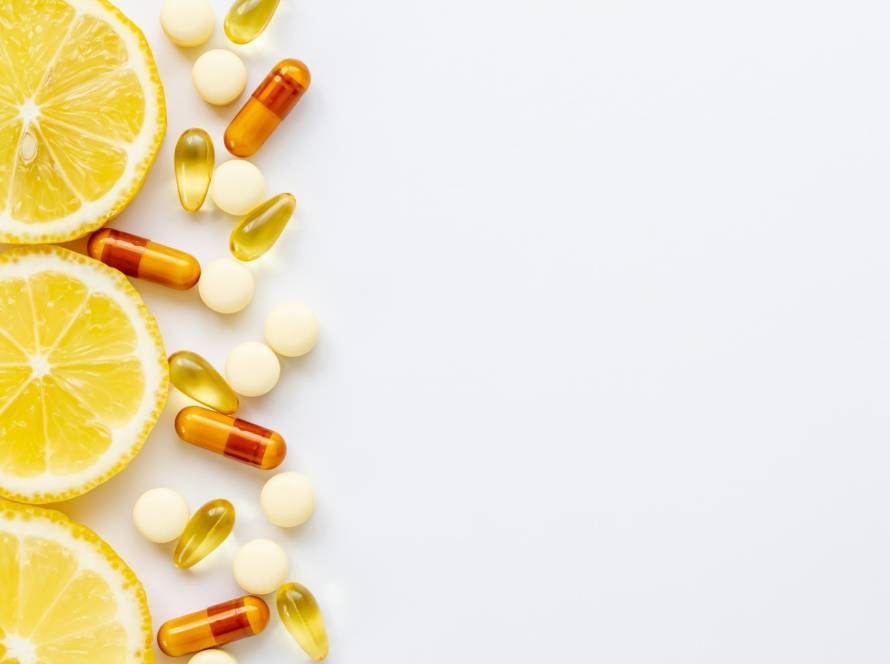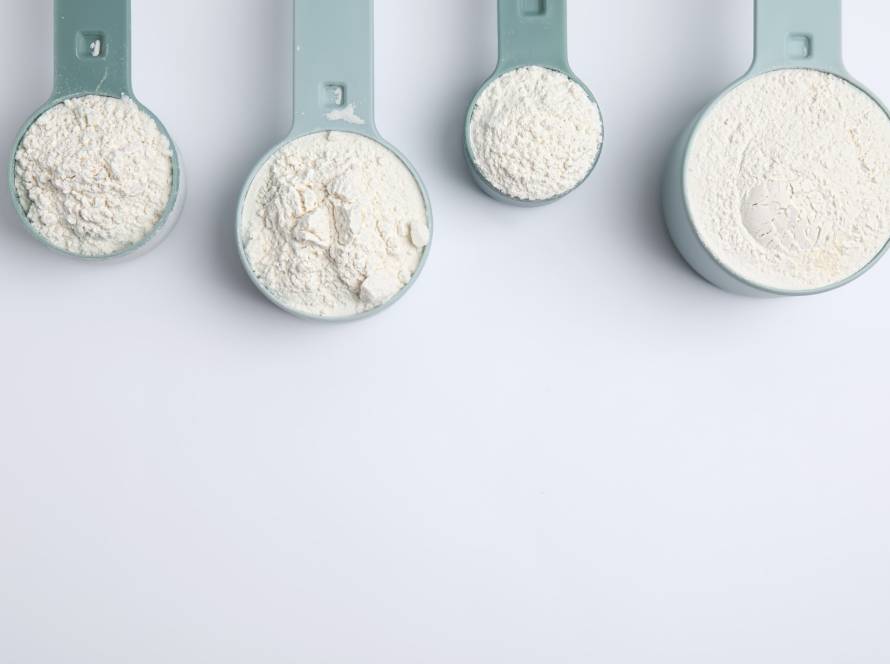Many people think if does creatine shorten lifespan, given its popularity as a supplement. Scientific evidence suggests quite the opposite. The benefits go beyond athletic enhancement.
This piece will get into the scientific evidence behind creatine’s connection to longevity and explain why proper supplementation might support healthy aging instead of reducing it.
Can creatine negatively affect how long we live?
Current research shows no evidence that creatine shortens lifespan. In fact, creatine is one of the most well studied and safest supplements available, with proven benefits for muscle strength, brain function and healthy aging.
Long term human studies have not linked creatine to any serious health risks in healthy individuals using standard doses. On the contrary, creatine may help maintain muscle mass and cognitive performance, two key factors for longevity. When used responsibly, it appears to support rather than harm long term health.
Why some believe creatine may shorten lifespan
Myths about creatine’s effects on lifespan come from specific concerns that spread since it became popular as a supplement in the 1990s. Scientific evidence now backs creatine’s safety profile and knowing why these concerns first came up helps separate facts from myths about creatine and longevity.
Concerns about kidney and liver stress
People worry most about how creatine supplements might stress the kidneys. This worry likely started from two things: people didn’t understand how creatine breaks down and there were a few isolated case reports. Our kidneys naturally filter creatinine (what creatine breaks down into), which doctors use to check kidney health. Blood creatinine levels can go up temporarily with creatine supplements, leading people to think it might harm their kidneys.
Medical literature showed a few cases that seemed to link creatine supplements with kidney problems, including a notable 1998 case study. These rare cases usually involved people who already had kidney issues, were taking medications, used too much creatine or were using steroids at the same time.
Liver concerns came up after some animal studies. Research on rodents showed that high doses of creatine led to higher liver enzymes and changes that pointed to liver damage.
Misconceptions about metabolic overdrive
Another worry comes from not understanding how creatine works in cells. Creatine helps cells make more energy, especially during hard exercise. Some people hypothesized that this energy “boost” might make cells age faster or wear out.
The idea suggested that boosting ATP production through creatine supplements might force cells to work too hard. This idea gained more ground when people noticed weight gain right after starting creatine. The weight gain happens because creatine pulls water into muscle cells, but some saw it as a sign that something was wrong with their metabolism.
Research now shows that creatine’s effects on metabolism are normal and healthy. Rather than shortening life, creatine’s role in energy production might help healthy aging by keeping cells working well during tough times.
Questions about creatine’s long term effects made sense years ago, but current evidence shows recommended doses are safe for most people. New research suggests creatine might actually help healthy aging by protecting muscles and nerves.
What science actually shows about creatine safety
Research shows creatine is safe to use in a variety of populations, despite what many people think. Studies that looked at creatine supplements paint a clear picture of its safety when people use it the right way.
Clinical trials on creatine safety
The largest longitudinal study has given us a full picture of how safe creatine really is. Scientists analyzed 685 human clinical trials with 12,839 people taking creatine and compared them to 13,452 people taking placebos. Most studies used creatine monohydrate at 12.5 g/day for about 64.7 days, though some went on for 14 years.
The results showed almost no difference in side effects between people taking creatine and those taking placebos (4.60% vs. 4.21%). Stomach issues were a bit more common in the creatine group (4.9% vs. 4.3%), but this difference went away when scientists looked at total participant numbers instead of individual studies.
Athletes who took 16 g/day of creatine for 5 days and then 5-10 g/day for 21 months showed no major changes in:
- Kidney function markers;
- Liver enzymes;
- Electrolytes and blood lipids;
- Muscle damage indicators;
- Urinalysis values.
Research suggests athletes who take creatine get fewer injuries than those who don’t, possibly because their bodies handle training better. Studies also show that creatine helps prevent muscle loss during rest periods and speeds up recovery after injuries.
FDA and global regulatory positions
Creatine’s regulatory status has changed over the last several years as more safety evidence came in. The United States Food and Drug Administration (FDA) made a big move in late 2020 by classifying creatine as “generally recognized as safe” (GRAS). This means experts agree that science proves creatine is safe when used as intended.
The FDA handles dietary supplements differently from regular foods and medicines. Still, they can step in if products are tainted or mislabeled. Creatine monohydrate stands out from other supplements because it has clear legal status.
Creatine isn’t like anabolic steroids or banned substances, it’s known for its benefits. The International Society of Sports Nutrition (ISSN) stands against age limits for creatine use, pointing out that warnings about creatine’s dangers don’t match the science. The ISSN states that creatine offers many health benefits with very few side effects.
Creatine’s potential role in healthy aging
Research shows creatine does more than just improve safety. It might help us live longer and age better through several biological processes that keep us healthy as we get older.
Preserving muscle mass and strength
Older adults lose muscle mass (sarcopenia), which leads to weakness and dependency. Studies show creatine supplements combined with resistance training boost muscle mass and strength better than just working out alone. Research show creatine supplements led to 0.36% per week greater lean mass gains and 1.09% per week greater strength gains compared to placebo.
Creatine works because it can:
- Boost satellite cell activation and protein synthesis;
- Make muscle fibers respond better to calcium;
- Raise insulin-like growth factor 1 (IGF-1) signaling;
- Help cells stay hydrated and volumized.
Creatine protects muscle better during periods of inactivity than during regular exercise. This protective benefit could really help older people who struggle to exercise consistently maintain their independence.
Supporting cognitive function and brain energy
Our brain’s energy metabolism naturally declines with age, which can lead to cognitive decline. The brain has lots of creatine kinase activity and readily absorbs supplemental creatine. Studies show creatine supplements can boost cognitive function in many areas, especially tasks that need quick thinking and memory.
Vegetarians usually have lower creatine levels and supplements improve their memory and intelligence test scores. Older adults with age related cognitive changes who took 5g of creatine daily for two weeks showed better working memory and processed information faster after maintenance doses, according to studies.
Creatine protects our brain beyond just providing energy. It helps maintain mitochondrial function, lowers oxidative stress and keeps cell membranes stable, all crucial for keeping our brain healthy as we age.
Reducing fall risk and improving mobility
Falls kill more older adults through injuries than almost anything else. Creatine supplements might lower our fall risk by keeping muscles strong enough for balance and movement. Research proves creatine helps elderly people perform better in activities that need balance and coordination.
The real world benefits include better performance in standing up, climbing stairs and daily activities. These improvements help people stay independent and enjoy life more. Creatine also helps build stronger bones when combined with resistance training, which could prevent fractures while reducing falls.
The evidence points to creatine offering many benefits for healthy aging beyond just helping athletes. Scientists now see creatine as a helpful tool to fight age related decline in many body systems that keep us independent and living well.
Creatine and brain health across the lifespan
Creatine’s effects on brain function go far beyond athletics. Research shows it plays a vital role in supporting cognitive health throughout life. The brain needs lots of energy. It uses about 20% of the body’s energy despite making up only 2% of body mass. This makes creatine especially valuable for optimal neurological function.
Cognitive benefits in older adults
Recent systematic reviews show creatine supplements substantially improve memory performance in healthy people (standard mean difference = 0.29). The effects are much stronger in older adults aged 66-76 years (SMD = 0.88) compared to younger people aged 11-31 years (SMD = 0.03). These brain benefits become most noticeable at times of metabolic stress or when the brain needs more energy.
Neuroprotective effects in neurodegenerative diseases
Scientists have found more evidence about creatine’s role in managing neurodegenerative conditions. The phosphocreatine system is vital for cellular energetics and pathways that these disorders affect. Creatine supplements have shown protective effects against β-amyloid toxicity in Alzheimer’s disease models. They might help manage Parkinson’s disease symptoms by lowering oxidative damage and mitochondrial dysfunction. On top of that, creatine helps protect against neuron loss in the motor cortex and substantia nigra. This could benefit patients with amyotrophic lateral sclerosis (ALS).
Creatine and mood regulation
Scientists are learning more about how creatine intake relates to mental health. Women’s depression odds drop by 18% for each gram of creatine they consume. This sex specific effect matches animal studies where female rats showed bigger reductions in depressive behaviors than males after taking creatine supplements. So, using creatine supplements alongside antidepressant therapy looks promising.
Mitochondrial protection and ATP buffering
At its core, creatine improves brain function by acting as a temporal and spatial high energy phosphate buffer. It maintains ATP levels during activities that need lots of energy. This buffering becomes especially important when energy demands increase or mitochondrial function decreases. Creatine does more than just help with energy production. It acts as an antioxidant, removes reactive oxygen species and helps stabilize mitochondrial membranes. This protects brain cells from various stressors. These mechanisms explain why creatine supplements work particularly well during cognitive challenges like sleep deprivation or intense mental tasks.
Creatine’s benefits extend to crucial factors that influence longevity. Our muscles and cognitive function improve especially when we have regular creatine supplements. Research shows older adults who take creatine experience notable improvements in lean mass and strength. This could help delay age related muscle loss and frailty. The brain also benefits as creatine boosts energy metabolism and protects nerve cells from oxidative stress and mitochondrial problems.


